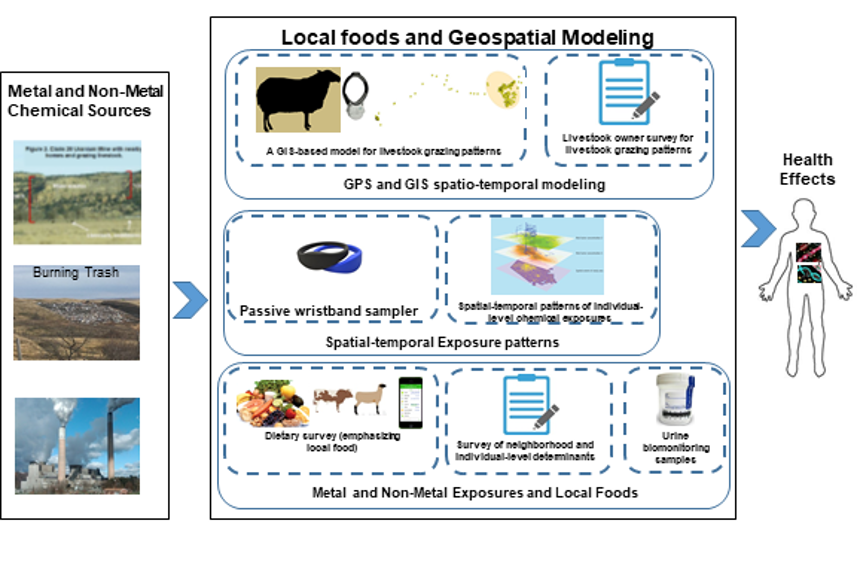Dr. Yan Lin to Lead Newly Awarded NIH P50 Environmental Health Disparities Research Project
News
Posted: Feb 05, 2021 - 12:00am

The newly awarded Center for Native American Environmental Health Equity is one of the three NIH Centers of Excellence on Environmental Health Disparities Research (P50). Dr. Yan Lin is leading a research project entitled “Evaluating Cumulative Environmental Exposure to Metals and Non-metals and Community-level Health Using Geospatial Modeling and Personal Exposure Assessment” as one of the three R01 level research projects with this center. As a geographer, Dr. Lin applies geospatial thinking to better understand and address environmental health disparities on tribal lands.
Background
Tribal communities are concerned about the impact of environmental contamination on their health as well as the health of their animals. Environmental contamination often comes from abandoned mine waste, power plants, oil and gas production, pesticide use or from open burning and dumping of trash on tribal lands. Pollutants are released to the environment through different pathways: water, air, soil, and plants. Human and animal exposure to these contaminants contributes to health disparities observed in these communities by exacerbating the risk from existing mine-waste exposure.
Project Aims
There are three specific aims of this project: (1) model environmental exposure that combines water, air, and soil pathways across the partner tribal communities (Navajo Nation, Cheyenne River Sioux and Apsaálooke (Crow)) based on an existing geospatial model for Navajo Nation and data from ongoing work; (2) ground truth the model through individual-level measurement of exposure using silicone wristband samples, GPS tracking, dietary data collection, and biomonitoring sample collection; and (3) collect community-level health survey data to examine the relation between exposure and disease.
Significance
This project will directly address tribal communities’ concerns about exposure risks and impacts on their health. The research is also significant in that it studies multiple exposure pathways jointly which broadens our understanding of the environmental exposure experienced by our partner communities. Understanding and evaluating the health outcomes associated with exposure will ultimately contribute to addressing health disparities.
Partners
Dr. Joseph Hoover, Assistant Professor in Social Sciences and Cultural Studies, University of Montana Billlings
Dr. Debra MacKenzie, Research Assistant Professor at the College of Pharmacy, UNM
Dr. Esther Erdei, Reseach Assistant Professor at the College of Pharmacy, UNM
Dr. Johnnye Lewis, Professor at the College of Pharmacy, UNM
Dr. Li Luo, Research Assistant Professor in the Division of Epidemiology, Biostatistics and Preventative Medicine, Department of Internal Medicine, UNM
Dr. Jorge Gonzalez Estrella, Assistant Professor at the School of Civil and Environmental Engineering, Oklahoma State University


